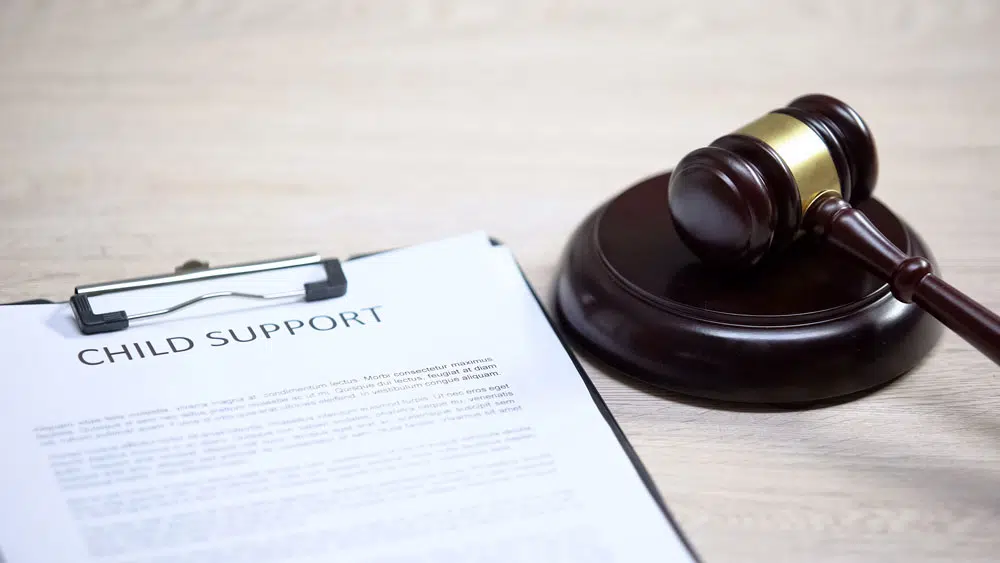The Articles of Confederation, our nation’s first “constitution,” were badly flawed. Each state could have set up tolls and tariffs at its borders, so a sack of Virginia peanuts traveling to New York could have had an expensive and perilous journey. Today interstate laws provide for the smooth flow of goods and services between the states. That flow includes child support.
Interstate Child Support
Interstate child support is governed by a national agreement, the Uniform Interstate Family Support Act of 1992 and amended in 2008 (UIFSA). Virginia enacted the law in 2015. A child receiving financial support from a parent does not have to live in Virginia to continue receiving that support.
Virginia’s law falls into line with all the other states and the District of Columbia in not only upholding the ability of a parent in one state to collect child support from a parent in another state, it also comports “with the obligations of the United States under the 2007 Hague Convention on the International Recovery of Child Support and Other Forms of Family Maintenance.” Since the regulations laid out appear in state, federal, and international law, a Virginia parent would be wise to abide by them.
The Rules, In a Nutshell
Give legislators some legal paper and a few pens and expect plenty of words in return. The various laws protecting children and compelling interstate child support are, shall we say, ideal bedtime reading. But, in a nutshell:
- The state originating a child support order maintains jurisdiction over it, regardless of where the child and custodial parent reside
- Every state and D.C. will honor every other state’s (and D.C.’s) child support orders
- No parent can use anyone’s physical address as an excuse to avoid paying child support
Let’s tackle these issues one at a time.
How Jurisdiction Works with Child Support
You and your spouse divorced in Virginia and you were made the non-custodial spouse. You are ordered to pay child support in accordance with Code of Virginia § 20-108.1. The child’s custodial parent petitions a Virginia court to move with the child to, let’s say Wyoming (lovely country out there; bit cold, lovely country).
Your child is an avid horse aficionado, and Virginia’s prized quarter horses just won’t do (we’re riffing here, so let it go). Your attorney and you agree on the move, complicating your parenting time but recognizing that the move is in the best interests of the child (as everything involving kids in Virginia family law must be).
Wyoming’s Department of Family Services will enforce the Virginia court order to the letter. You cannot escape sending the same amount of money you had been sending to a Virginia address out to Lost Springs, WY on a claim of, well, it’s lost. It’s not lost; your child and ex-spouse live there, and your child support payment must go there.
Mutual Enforcement of Child Support
Wyoming is not enforcing Virginia’s court order and child support payments out of the goodness of its governmental heart. It really reflects Wyoming’s state motto: “Equal Rights.” Under the UIFSA, all states (and the District of Columbia, don’t forget!) expect other states to uphold each other’s decrees. Wyoming scratches Virginia’s back; Virginia scratches Wyoming’s back.
UIFSA and other interstate laws also smooth out irregularities in family law orders. Everyone operates from a level playing field. Everyone enjoys Equal Rights.
The system is so uniform, it comes with uniform forms: every state uses the same paperwork for dealing with interstate child support enforcement. If you want to be informed about the uniformity of the forms, all 13 are available at the U.S. Department of Health & Human Services website.
You Have No Excuse to Delay or Not Pay
A spouse cannot use a change of address as an excuse for delays or cessation of child support payments. Whether moving within Virginia or to another state (yes, yes, or D.C.), no parent can relocate a child without informing the non-custodial parent and getting the originating court’s approval. The spouse who pays child support was informed and given an opportunity to appear in court either in support or opposition to any move.
Many aspects of a child’s life are affected by relocating after separation or divorce:
- Availability of favorite doctors
- Child’s school
- Child’s circle of friends
- Ease of scheduling parenting time
- Change in cost of living
No court takes these issues lightly. For a Virginia court to approve relocation of a child and custodial spouse, the court must be convinced the move is in the child’s best interests and that both parents can accept the move.
Only the originating state is able to modify an existing order for child support. In our Virginia-Wyoming example, Virginia has continuing jurisdiction and the power to modify the order, not Wyoming. The custodial spouse, residing in Wyoming, must work through a Virginia family law attorney and Virginia’s courts to ask for any modification.
If you are confused about child support, please contact us at The Firm For Men, or telephone our Virginia Beach office at (757) 383-9184. If you owe child support, please pay it; if you are owed child support, we can help!

